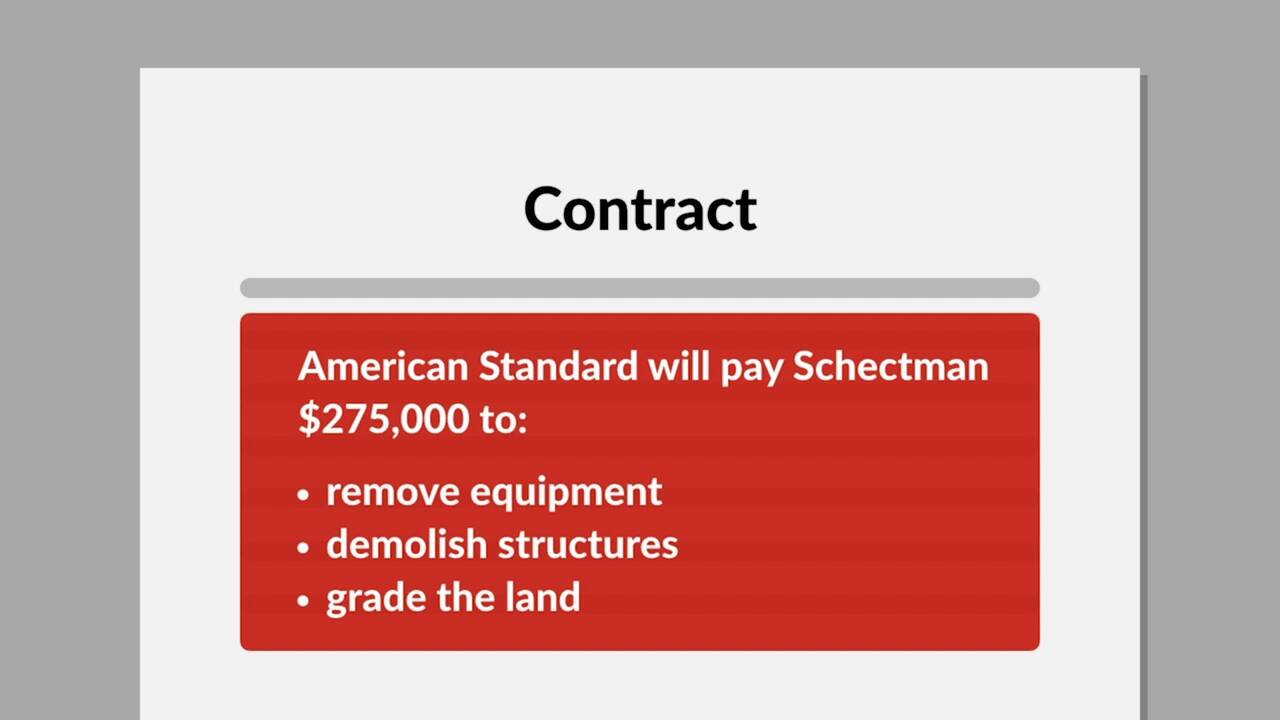American standard inc v schectman – In American Standard Inc. v. Schectman, a groundbreaking decision, the court established an implied warranty of habitability in lease agreements, revolutionizing landlord-tenant law and strengthening tenants’ rights. This landmark case has had a profound impact on the legal landscape, shaping the responsibilities of landlords and the protections afforded to tenants.
The case revolved around a defective heating system that rendered an apartment uninhabitable. The court’s decision recognized the fundamental need for safe and habitable living conditions, holding landlords responsible for ensuring their properties meet minimum standards of habitability.
Case Summary
American Standard Inc. v. Schectmanis a leading case in the area of implied warranty of habitability. The case involved a dispute between a homeowner and a contractor over the construction of a new home. The homeowner alleged that the home was defective and uninhabitable due to several problems, including a leaky roof, faulty wiring, and inadequate heating and cooling systems.
The court ruled in favor of the homeowner, holding that there is an implied warranty of habitability in all contracts for the sale of new homes. This warranty requires the builder to construct a home that is fit for human habitation and that meets certain minimum standards of quality.
Implied Warranty of Habitability
The implied warranty of habitability is a common law doctrine that has been adopted by most states in the United States. The warranty is based on the principle that a home is a basic necessity and that people should be able to rely on the builder to construct a home that is safe and habitable.
The implied warranty of habitability covers a wide range of defects, including structural defects, mechanical defects, and health hazards. The warranty is not limited to new homes, but it can also apply to existing homes that are being sold.
Legal Analysis

The court found that there was an implied warranty of habitability in the lease agreement based on several factors. First, the court noted that the lease was a residential lease, and that residential leases are generally considered to be contracts for the provision of shelter.
Second, the court found that the landlord had a duty to maintain the premises in a habitable condition, and that this duty was implied by law even if it was not expressly stated in the lease agreement.
Significance of the Court’s Holding
The court’s holding in this case was significant because it expanded the scope of landlord liability. Prior to this decision, landlords were generally only liable for injuries caused by defects in the premises that they knew or should have known about.
However, the court’s holding in this case imposed a duty on landlords to maintain the premises in a habitable condition even if they were not aware of any defects.
Impact of the Decision: American Standard Inc V Schectman
The decision in American Standard Inc v. Schectman had a significant impact on landlord-tenant law in the United States. It established the principle that landlords have a duty to disclose material facts about the property to prospective tenants, and that failure to do so can give rise to a cause of action for fraud.
The decision has been used to protect tenants’ rights in a number of ways. For example, it has been used to hold landlords liable for failing to disclose the presence of lead paint, asbestos, or other hazardous materials. It has also been used to hold landlords liable for failing to disclose the fact that the property is in a flood zone or that it has been the site of a previous crime.
One of the most important ways that the decision has protected tenants’ rights is by giving them a legal basis to challenge unfair or deceptive practices by landlords. Prior to the decision, tenants had little recourse if they were misled by a landlord about the condition of a property.
However, the decision in American Standard Inc v. Schectman has given tenants a powerful tool to hold landlords accountable for their actions.
The decision has also had a significant impact on the way that landlords do business. Landlords are now much more likely to disclose material facts about their properties to prospective tenants. This has made it more difficult for landlords to hide problems with their properties, and it has made it easier for tenants to find safe and habitable housing.
Criticisms of the Decision
The decision in American Standard Inc. v. Schectmanhas been criticized by some for going too far in imposing liability on landlords. Critics argue that the decision will make it more difficult for landlords to rent out their properties, as they will be more hesitant to rent to tenants who are at risk of causing damage to the property.
Arguments against the Decision, American standard inc v schectman
- The decision imposes a strict liability standard on landlords, which means that they can be held liable for damages even if they did not know about the dangerous condition that caused the injury.
- The decision creates a disincentive for landlords to rent to tenants who are at risk of causing damage to the property, such as tenants with children or pets.
- The decision will lead to higher rents, as landlords will pass on the cost of increased liability insurance to their tenants.
FAQ Guide
What is the implied warranty of habitability?
The implied warranty of habitability is a legal principle that requires landlords to provide tenants with a habitable living space that meets minimum standards of health and safety.
What are the key factors considered in determining habitability?
Factors such as adequate heating, plumbing, electrical systems, structural integrity, and freedom from pests are typically considered in assessing habitability.
What are the consequences for landlords who fail to meet the implied warranty of habitability?
Tenants may have legal remedies, including rent withholding, repairs at the landlord’s expense, or even termination of the lease.